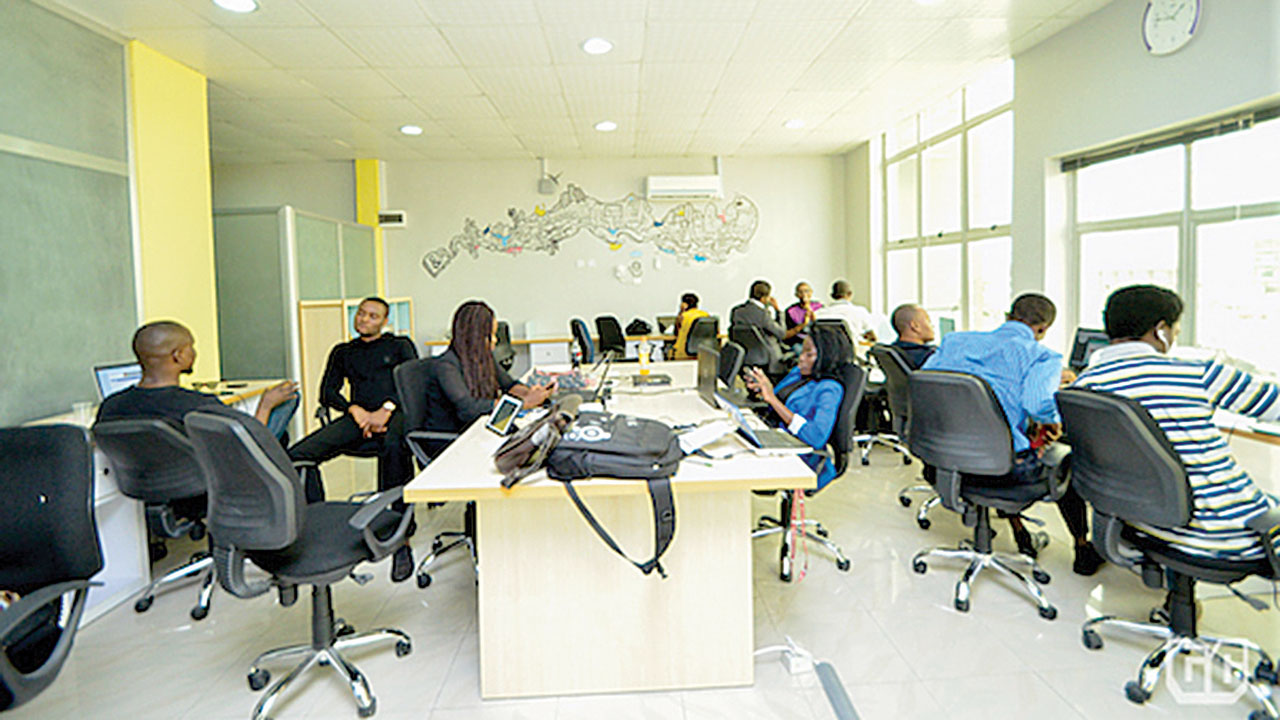The Nigerian entrepreneurial ecosystem is consistently growing. With over 3,000 startups launched in 2024 alone, Nigeria boasts the highest number of startups in Africa. This surge in entrepreneurial activity has created a significant demand for flexible workspaces, especially as workers grow tired of the traditional office system.
As with other commodities, the cost of real estate has risen dramatically in recent years, making it challenging for small startups in cities like Lagos and Abuja to afford office spaces. Another challenge is the increasing number of remote workers in the country, who require stable internet connectivity and reliable electricity. Equally important is the growing need for collaboration and networking among workers in similar or complementary fields.
This need for collaboration also reflects a desire to break away from the traditional office system, which often limits interaction and teamwork among employees.
Co-working spaces are shared office environments where people from various industries can work independently or collaboratively. These spaces often provide stable internet connectivity, uninterrupted electricity, and an ambience conducive to productivity. Workers can carry out their duties comfortably while benefiting from a dynamic work environment.
Since the establishment of the Co-creation Hub, Nigeria’s first co-working space, in 2011, many more innovative spaces have followed, with most concentrated in metropolitan areas like Lagos and Abuja.
Co-working spaces offer several advantages. By providing electricity and other essential amenities, these spaces significantly reduce overhead costs for business owners and employers. They also offer the flexibility that remote workers require while maintaining a level of structure.
Networking is another key benefit, as highlighted by Nnenna, a frequent user of co-working spaces. Unlike traditional offices, co-working spaces are not confined to a single work niche. Workers have the opportunity to meet professionals from diverse industries and build meaningful relationships. These conditions are ideal for collaboration and innovation.
The Challenge of Accessibility
While co-working spaces foster collaboration, healthy work environments, and cost efficiency, their availability remains limited. As noted earlier, a majority of these spaces are concentrated in urban centres like Lagos and Abuja.
This urban concentration is not surprising, given that a large percentage of Nigeria’s entrepreneurial ecosystem is based in these cities. However, as the ecosystem continues to expand across the country, the demand for co-working spaces in other regions will also increase.
Co-working spaces will play a pivotal role in the future of Nigeria’s evolving business landscape. As a new generation of workers turns away from the traditional office model and seeks more flexible alternatives, establishing more co-working spaces will be essential. The result will be increased innovation and improved productivity, driven by healthy, collaborative work environments.
The Nigerian entrepreneurial ecosystem is experiencing rapid growth, with over 3,000 startups launched in 2024, making Nigeria home to the highest number of startups in Africa. This boom has fueled demand for flexible workspaces as many workers seek alternatives to traditional office systems. Rising real estate costs in cities like Lagos and Abuja further challenge startups, alongside a growing number of remote workers needing stable internet and electricity.
Co-working spaces have emerged as a solution, offering shared environments where individuals from various industries can work independently or collaboratively. These spaces provide essential amenities like internet and electricity, reducing overhead costs and offering flexibility for remote work. They also foster networking opportunities, enabling professionals to build relationships across different industries, which is vital for collaboration and innovation.
Despite their benefits, co-working spaces mainly exist in urban areas like Lagos and Abuja due to the concentration of the entrepreneurial ecosystem there. As this ecosystem expands nationwide, demand for such spaces will increase in other regions. Co-working spaces are set to play a crucial role in shaping Nigeria's business landscape by supporting innovation and enhancing productivity within flexible work environments.






